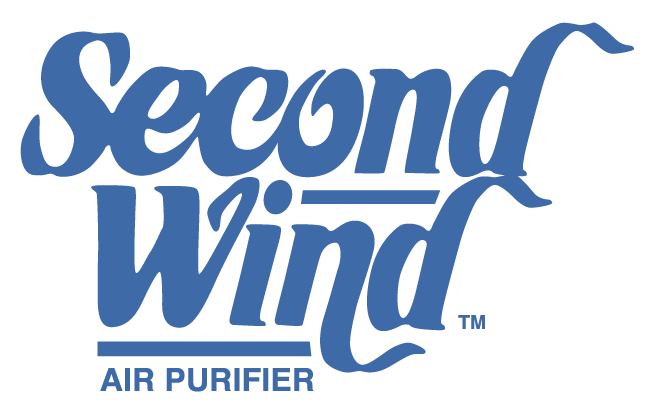Indoor Air Quality (IAQ) refers to the condition of air inside a house or building. This fact sheet provides general information about IAQ problems in the home and ways to correct them.
Many things can affect indoor air quality including:
- Temperature – how hot or cold it is.
- Humidity – the amount of water vapor in the air.
- Indoor Pollutants – gases or particles from sources inside the home, such as cigarette smoke, household products (paints, cleaners) or building materials (pressed wood products, carpeting).
- Outdoor Pollutants – contaminants that make their way into the home from outside, such as car and boiler exhaust, fires, or chemical releases.
- Ventilation – odors and pollutants can build up indoors when there is not enough fresh air getting into the home.
- Building maintenance – poor home maintenance can lead to cracks and leaks, which can cause pest infestations, mold growth and building damage.
Why is the Indoor Air Quality in your home important?
Most people spend the majority of their time indoors. Spending time inside a home with an IAQ problem may affect the health or comfort of you and your family.
How can Indoor Air Quality affect my health?
Health effects from IAQ problems can range from minor to serious, depending on the type of problem. Health effects can include headaches, tiredness, dizziness, nausea, itchy nose, irritated eyes, and scratchy throat. The symptoms usually go away once a person leaves a room or building. Talk to your doctor if you think you are having health effects from an IAQ problem.
How can I improve the Indoor Air Quality of my home?
If you think there’s an IAQ problem in your home, it’s important to try and find out what is causing the problem so that it can be corrected. Most times, simply getting more fresh air into your home will greatly improve indoor air quality.
The following is general information for improving home IAQ:
Eliminate Secondhand Smoke
- Don’t allow smoking inside your home.
Cook and Heat Safely
- If available, open a kitchen window or use your stove fan when you cook.
- Never use a gas stove or oven to heat your home. It can create deadly gases and start a fire.
- Never use a portable gas heater or charcoal grill in a closed space, including a garage.
- Report problems with stoves or boilers to your landlord.
- Test smoke and carbon monoxide detectors monthly and replace the batteries at least twice a year. Residential building owners are also required by law to replace carbon monoxide alarms periodically, as per the manufacturer’s instructions.
Safely Clean Your Home
- Open windows when using cleaning products that give off odors.
- Read and follow all warning labels and directions for use.
- Avoid using harsh cleaners whenever possible. Use a dilute soap water solution to clean, and baking soda as an air freshener and deodorizer.
- Choose products that are fragrance free.
- Never mix bleach with ammonia or with cleaners that contain ammonia. Dangerous gases may be created.
- Buy only what you need and store it safely away from children and pets.
Minimize Dust and Allergens
- Regularly mop and vacuum your home. Use wet cloths or microfiber cloths to dust.
- Wash bedding weekly in hot water.
- Place a floor mat at the front door to keep your home cleaner.
- Clean mold safely.
- Use safe pest control methods (PDF) to prevent pests from coming into the home:
- Fix leaks and seal up cracks and holes
- Store food in sealed containers
- Use garbage cans with tight-fitting lids
- Clean up clutter
- Don’t use fogger type pesticides
Keep Temperature and Humidity Comfortable
- In the summer, ideal indoor temperatures range from 73° F to 79° F, with a relative humidity between 30% and 60%.
- Constant humidity levels above 60% in the home can lead to mold growth.
- Use an air conditioner (PDF) or dehumidifier on hot and humid days and open the windows on cool or dry days.
- In the winter, ideal indoor temperatures range from 68° F to 75° F, with a relative humidity between 30% and 60%.
- Landlords in NYC are required to provide tenants with heat between October 1and May 31. Call 311 to file a complaint if your landlord isn’t providing heat.
Renovate and Repair Safely
- Prevent spreading dust if you renovate or remodel your home.
- Clean dust and debris with wet mops or cloths to prevent it from getting into the air.
- Use safe work practices and trained workers if any repair or renovation work disturbs lead paint or asbestos, as required by the law.
More Resources
The list below provides links to additional information related to IAQ in your home:
- VOCs & Carpeting: Public
- Smoke-free Housing
- Carbon Monoxide
- Fire, Smoke and Air Quality
- Floor Refinishing and Moisture Cure Urethanes (MCUs)
- Healthy Homes site and brochure (PDF)
- Indoor Moisture
- Lead Paint
- Metallic Mercury
- Mold
- Perchloroethylene - PERC (Tetrachloroethylene)
- Asbestos
- Asthma
- Safe Home Repairs and Renovation (Hurricane Sandy microsite)
- Keeping Cool Indoors during Heat Waves
- New York State Department of Health: Indoor Air
- U.S. Environmental Protection Agency: Indoor Air Quality
- U.S. Centers for Disease Control and Prevention/NIOSH: Indoor Environmental Quality
- U.S. National Institutes of Health: Household Products
Call 311 for information about Indoor Air Quality or to file a complaint about air problems from sources like renovation work, construction sites, dry cleaners, or restaurants.



 Specs, Maintenance
Specs, Maintenance Submit a
Submit a Humidifier Capacity
Humidifier Capacity Request a
Request a Find a
Find a





